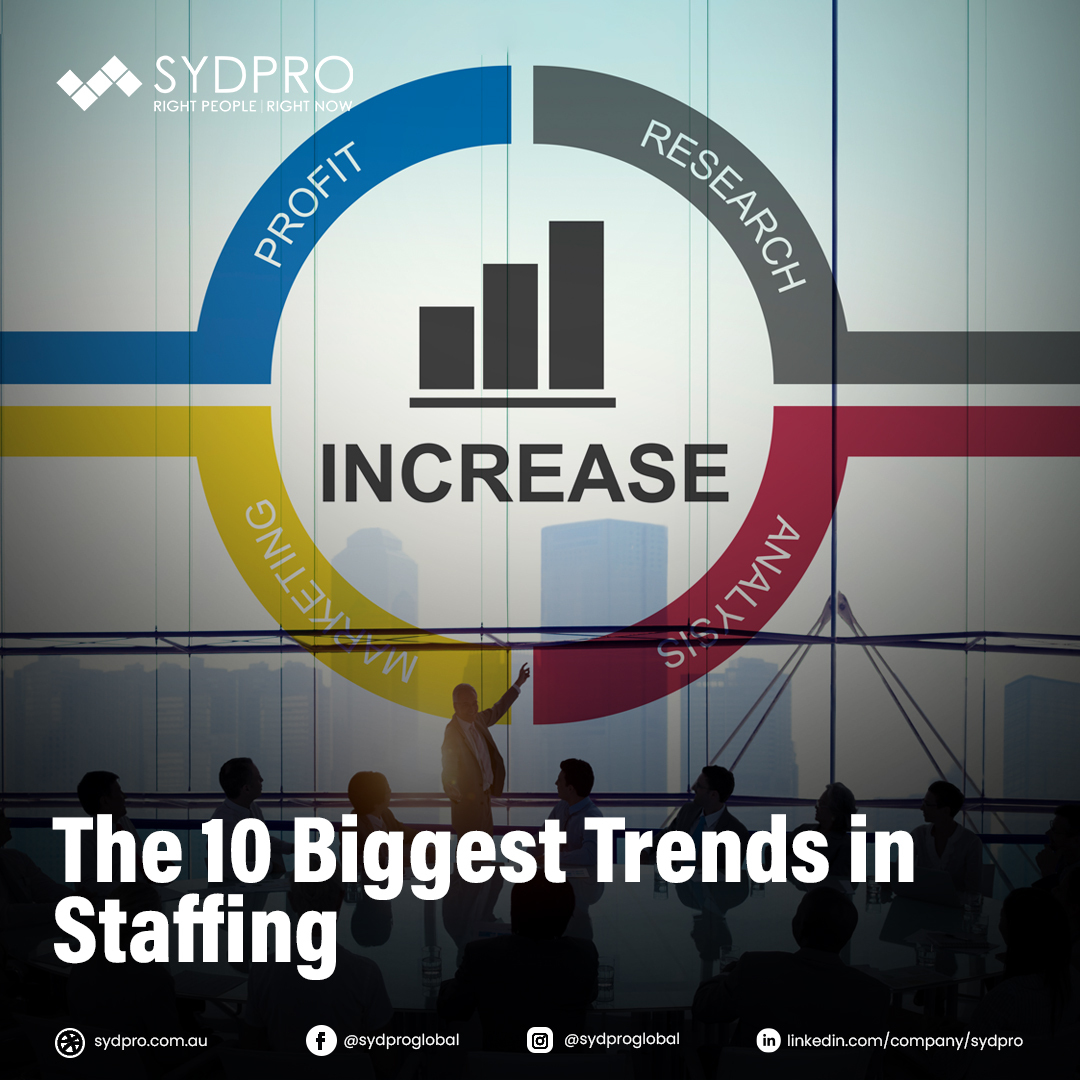Introduction
The world of staffing is constantly evolving, influenced by technological advancements, changing workforce demographics, and shifting economic landscapes. As we enter a new era marked by the aftermath of a global pandemic and rapid digital transformation, it’s essential for businesses and staffing professionals to stay ahead of the curve. In this article, we’ll explore the ten biggest trends shaping the staffing industry in 2023 and beyond.
Remote Work Revolution
The pandemic forced many organizations to embrace remote work. Now, even as things return to normal, remote work remains a significant trend in staffing. Companies are leveraging remote talent pools, allowing them to access top talent from around the world without geographical constraints.
Gig Economy Expansion
The gig economy continues to grow, with more workers opting for flexible, project-based employment. Staffing agencies are adapting by creating a bridge between organizations and freelancers, providing businesses with access to specialized skills on-demand.
AI and Automation
Artificial intelligence and automation are revolutionizing the staffing process. From resume screening to chatbots handling initial candidate interactions, these technologies are improving efficiency and streamlining the hiring process. However, the human touch remains critical in making final hiring decisions.
Diversity and Inclusion
Inclusion is not just a buzzword; it’s a fundamental aspect of staffing. Companies are actively seeking diverse talent pools, recognizing the value of different perspectives and experiences. Staffing agencies are tasked with helping clients foster diverse and inclusive workplaces.
Skills-Based Hiring
Traditional degrees are no longer the sole measure of a candidate’s abilities. More employers are shifting toward skills-based hiring, focusing on what a candidate can do rather than their formal education. This trend allows for greater workforce diversity and adaptability.
Data-Driven Decision-Making
Data analytics are playing a crucial role in staffing. Predictive analytics help agencies identify top candidates more efficiently, and data-driven insights allow businesses to refine their hiring strategies continually.
Employee Well-being
Staffing trends also emphasize employee well-being. Agencies are working to match candidates with organizations that align with their values and prioritize work-life balance. Employee mental health and overall satisfaction are at the forefront of staffing strategies.
Upskilling and Reskilling
The rapid pace of technological change means that workers must continuously update their skills. Staffing agencies are investing in programs to upskill and reskill candidates, ensuring they remain competitive in the job market.
Flexible Work Arrangements
Flexibility isn’t just for gig workers. Traditional employees are also seeking more flexible work arrangements. Staffing agencies are working with clients to create hybrid work models that accommodate a diverse range of preferences.
Cybersecurity and Data Protection
As the world becomes increasingly digitized, cybersecurity is paramount. Staffing agencies are placing more emphasis on vetting candidates for cybersecurity roles and ensuring that their clients’ data is protected throughout the hiring process.
Conclusion
The staffing industry is experiencing a significant transformation, driven by factors like remote work, technology, diversity, and changing worker preferences. Staying ahead in this dynamic landscape requires adaptability and a commitment to embracing these trends. Whether you’re a business looking to hire or a staffing professional, understanding and leveraging these trends will be crucial in shaping the future of work.
